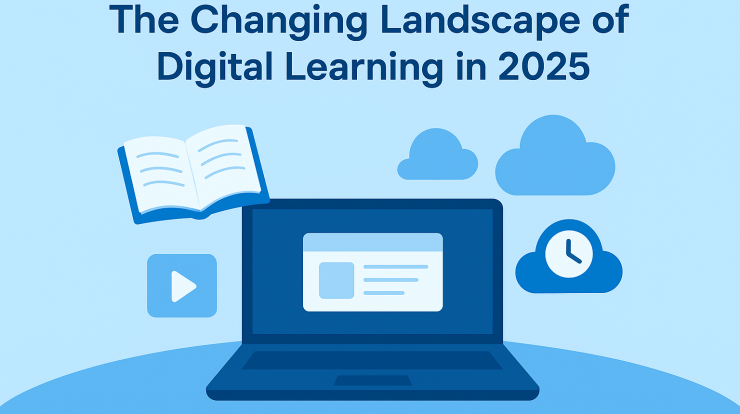Social work education relies heavily on field placements that offer practical experiences in real-world settings. This is where students apply theoretical knowledge while developing vital skills. Active participation is key for effective field placement, as observing client interactions enhances awareness of the particular needs of different populations.
It’s important to communicate with supervisors and colleagues during this process as it will allow students to foster professional growth through constructive feedback while taking on challenges that become opportunities for expanding perspectives and building resilience. Your self-awareness will deepen through retrospection, leading to continuous improvement that creates ideal foundations for future social work careers. You can pursue a clinical social work master’s at Cleveland State University to enhance your expertise in providing effective and compassionate support to individuals and communities.

How to make the most out of field placement in social work education
Optimizing one’s social work education requires intentional effort on behalf of students seeking to get the most out of their field placements. Active participation is a critical component for success in this regard. Students should take ownership of their learning experiences by seeking out challenges and embracing them fully.
Diversifying one’s exposure to various aspects of social work practice can also lead to enhanced skill development over time. Also, cultivating strong relationships with professionals and clients will undoubtedly contribute to long-term success within this career track.
Consider these key strategies for maximizing your potential during your next field placement opportunity:
Set clear learning goals
Social work education programs encourage hands-on training through field placement opportunities. However, clear learning objectives need to be established to derive maximum benefit from such experiential learning. It’s essential to set specific goals as they provide clarity for students in what they hope to achieve by participating in this immersive program. Such well-defined targets help learners focus effectively on acquiring knowledge, developing skills and applying these practices.
When individual student priorities are aligned with specific educational outcomes, areas requiring growth become evident. Consequently, learners can identify fitting opportunities relevant to their journey toward enhancing their professional development while gaining exposure in the field.
Open communication between students and supervisors is key when fostering a supportive environment conducive to collaborative learning experiences. Setting clear learning objectives beforehand maximizes the benefits of field placement programs and gives social work students an added advantage as they progress along their career pathways.
Establish a professional network
Social work students who want to make good use of their time spent in field placement should prioritize building professional networks as part of their strategy. Collaborating on ideas allows them to learn from their peers and gain critical insights about what works. This helps them build valuable skills for their professional development. Thanks to these valuable relationships, they will also be well positioned when it comes time for job hunting; connections made today could turn into job offers tomorrow if nurtured properly.
Tapping into a supervisor’s wider array of perspectives provides invaluable access to potential approaches, emerging trends and best practices that can be implemented immediately. A strong network of professionals opens doors that might be closed otherwise. Investing time and energy into building your professional network during field placement is an investment in your education and future career.
Actively participate in team meetings
Social work education requires active participation in team meetings during field placements. This ensures that students can benefit as much as possible from this experience. Engaging with teammates fosters collaboration and teamwork that significantly enriches learning outcomes.
One effective way of contributing positively during these sessions is by sharing personal insights into discussions that collectively improve the knowledge pool accessible within the group context. Actively listening during such sessions exposes students’ viewpoints to diverse perspectives, enhancing their comprehension of social work practice immensely.
Asking clarifying questions can help reaffirm your commitment while ensuring that you understand key concepts, thus leading to positive results through proactive learning. Embracing opportunities such as participating in team meetings will further your professional growth, strengthen networking prospects and promote strong mentorship connections.
Seek supervision and guidance
Maximizing the rewards associated with field placement in social work education necessitates proactive engagement in supervision through intentional guidance-seeking tactics. This may include having frequent sessions with your supervisor where case-pertinent issues are deliberated upon while reflecting on prior practices towards improving your sense of professionalism.
A healthy collaboration may be achieved by being receptive to constructive criticism and asking for feedback when opportunities arise during supervision. Learning through mentorship programs overseen by more experienced practitioners helps introduce varying intervention approaches relevant to modern-day contexts among students while also broadening your knowledge base.
The capacity to embrace diverse perspectives helps with personal growth and acquiring social work skills for navigating complex scenarios.
Engage in self-reflection and self-assessment
For social work students to leverage field placements effectively for maximum benefit, they should engage in critical self-reflection and assessment exercises. The focus here is on examining oneself, including personal beliefs, values, thought patterns and behavior displayed in field contexts, while highlighting what points require attention or improvement.
Regular intentional self-reflection drills are essential components of professional development for social work students. They foster insight into one’s biases and values, driving greater cultural competency. This translates into more responsive care toward clients from diverse backgrounds. Self-assessment also empowers students to be proactive learners who actively seek out feedback from others by identifying areas requiring improvements, allowing them to adapt their practice accordingly.
Embrace challenges and learn from mistakes
Getting the most out of field placement in social work education means embracing challenges with open arms. This applies even when they seem daunting or difficult at first glance as well as learning valuable lessons from any missteps. Not only does actively seeking out challenging situations foster personal development, but it also contributes toward professional development.
By engaging with these hurdles upfront, social workers are able to gain insights into their clients’ needs while sharpening their problem-solving skills at the same time. Equally important is seeing errors as opportunities for growth and improvement. Reflecting on what went wrong allows social workers to become more self-aware and refine their strategies for future practice. Advancing this proactive mindset towards challenges and mistakes helps social work students develop resilience, adaptability and a commitment to continuous growth throughout their field placement experience.
In conclusion, educational field placements in the realm of social work provide students with unparalleled experiential learning prospects. Such programs allow them to implement theoretical concepts into practical scenarios to gain indispensable expertise for becoming a professional practitioner. This active participation also aids personal growth by enabling students to understand pressing societal issues holistically while working collaboratively with fellow practitioners.
Deep introspection on the challenges faced when dealing with clients during such assignments adds invaluable insight that empowers future contributions as leading experts.








